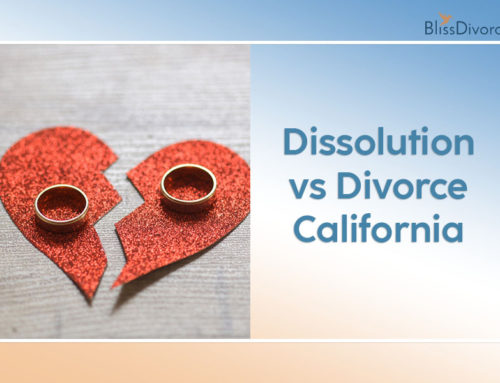Social media is a great way to keep in touch with family and friends by sharing photos and life updates. However, people need to be cautious about the use of social media during divorce proceedings. Your spouse can use what you post on your social media accounts as evidence against you during your divorce. The evidence can affect many things in your divorce agreement, including child custody and spousal support.
If you want to protect your rights, learning the effects of social media in online divorce and how to manage your online presence is important.
Social Media in Online Divorce: Tips for Managing Your Online Presence
Today it’s rare to find someone without any social media presence. Most people have accounts on several social media platforms, including Facebook, Twitter, and Instagram.
Facebook, in particular, has a significant impact, according to the Journal of Cyberpsychology, Behavior and Social Networking.
During a divorce, spouses deal with increased emotions, leading to impulsive decisions. One of the worst mistakes people can make during divorce proceedings is to air their grievances on social media.
It is incredibly important to remember that what you post online may be used as evidence against you by your spouse. Social media in online divorces, even though many are uncontested, may cause issues. It can turn an amicable split into a drawn-out legal battle.

Source: shutterstock.com / Photo Contributor: smolaw
How Social Media May Affect Your Divorce
Online divorce services are a good option for spouses who want to split without the conflict created by hiring attorneys. In the past online divorce services were only for simple, uncontested divorces. But increasingly sites like BlissDivorce can help couples resolve disagreements and work out a full settlement without attorneys involved.
One of the things online divorce avoids is attorneys digging up incriminating evidence on you and your spouse. The first place San Diego attorneys look is social media. This can not only trigger antagonism between you and your spouse, but can also have a profound impact on your child custody arrangement and other aspects of your divorce agreement. This is one of the reasons the best way to protect your interests is not necessarily to hire an attorney.
But even if you avoid attorneys and use online divorce, social media can have an impact on your proceedings. Let’s take a look at social media issues to consider as you go through online divorce.
Badmouthing a spouse
First and foremost, avoid badmouthing your spouse on social media. This may sound obvious, but when emotions run high this can often happen. Even if you delete the post, people will have seen it and your spouse will probably find out about it.
Why is this a bad thing during online divorce? Mainly because it can put your online divorce proceedings in jeopardy. If your spouse feels you are not acting in good faith he or she may abandon the online process and hire an attorney. Then costs will escalate exponentially and you could be stuck in a prolonged and expensive battle.
But even if your spouse does not abandon the online divorce process, unnecessarily antagonizing your spouse will only make reaching an agreement through online divorce more difficult. Also, negative posts about your spouse are usually considered bad form and can make friends and family sympathetic to your spouse.
So no matter how frustrated you get about the situation, avoid badmouthing your spouse during online divorce proceedings.

Source: shutterstock.com / Photo Contributor: Prostock-studio
Flaunting assets and lifestyle
One mistake some people make while going through an online divorce is to post happy pictures in an attempt to show they are OK despite what their spouse has done to them. This could be vacation photos, photos of a new car or even photos with a new boyfriend or girlfriend.
These kinds of posts almost always backfire. While they might make you feel good, you’re also signaling your spouse about how great you’re doing without them. During online divorce proceedings this can make your spouse less likely to compromise or, even worse, make them think they should get more in the settlement. After all, if you’re doing so great and have this new stuff, why shouldn’t they get a little extra?
It’s usually best to resist the urge to post about how great you’re doing during divorce. Stay low key on social media and make heartfelt posts about friends and family that won’t stir up your spouse’s emotions.
Giving evidence to your spouse
You hope during online divorce proceedings that you will both stick with the process and neither will bail and hire an attorney. But there is always the chance that one of you will.
This is one reason it’s important not to post anything on social media that could be used against you: there’s always the chance you’ll end up in court. Another consideration is even if you continue with the online process, your spouse can use an online post against you. They can threaten to hire an attorney and use the post as evidence in court if you don’t meet their demand.
So it’s usually best to avoid posting the following types of behavior, even if it seems innocent:
- Pictures consuming alcohol
- Pictures or comments about the use of drugs
- Sexually suggestive pictures or posts
- Pictures or comments about any kind of illegal activity, even if in a joking way
- Admissions of road rage or other socially questionable behaviors (save the “mea culpas” for after your online divorce is finalized)

Source: shutterstock.com / Photo Contributor: Volodymyr TVERDOKHLIB
Don’t air your parenting frustrations online
We can all get frustrated by our children. This is a normal part of parenting.
Social media has become a place to air these frustrations, sometimes humorously. This is usually innocent enough, but be careful while you’re going through an online divorce.
Posts about your children that seem innocuous can be construed in negative ways. For example, a funny post about how you almost lost your mind over how many times your child asked “are we there yet” could be construed as evidence about your parenting.
This might seem paranoid, but it’s best to be extra cautious during a divorce. This includes online divorce. Your spouse can use these posts against you in the unfortunate event that attorneys do get involved. But even if attorneys don’t get involved your spouse can use these posts as leverage points to unfairly get more of what he or she wants.
So again, during online divorce proceedings, err on the side of caution when deciding what to post. Posts about parenting are best avoided. If you’re not sure whether or not to post something, don’t.
Infidelity
Even if you’re in a state like California that only has no-fault divorce, infidelity can affect your divorce settlement. It can have an even greater impact if you live in a state that allows for fault-based divorce.
Social media is the primary form of evidence these days to support claims of infidelity. It can provide photographic evidence, as well as evidence through posts and comments.
The rule in general is to avoid posting information about your new relationships until your divorce is finalized. Even if your spouse is aware of your new relationship it is still best to be cautious about what you post. Photos with your new partner can stir emotions with your spouse that make reaching an agreement more difficult. These photos could also be used as evidence if things do end up in court.
It’s even smart to be cautious about what you post if you’re not in a new relationship and there has been no infidelity. Again, pictures can be misconstrued. What seems completely innocent to you might be taken in another way by your spouse or a judge. A pattern of photos of flirtatious behavior or repeated posts with the same person or can imply infidelity where it doesn’t exist.
So follow this rule of social media posts during online divorce: if you’re not sure about posting it, don’t.

Source: shutterstock.com / Photo Contributor: LBeddoe
Tips for Managing Your Online Presence During a Divorce
After you separate from your spouse, it is important to change all the passwords on your social media accounts immediately. The best course of action is to deactivate your social media accounts during the divorce proceedings.
However, in this age, social media is most people’s main mode of communication, and shutting down accounts isn’t always a viable option.
So, if you decide to continue using social media, consider doing the following:
- Across every social media platform you use, enable a private account in the settings.
- Create strong passwords and ensure to update them often.
- Do not post about your divorce.
- Do not badmouth anyone involved in the divorce (spouse, judge, etc.).
Limit social media usage
Even if you don’t deactivate your social media accounts, limiting their use is best for you during the divorce. Spend more time offline than online, and don’t delete any accounts or posts.
Deleting things from your social media accounts may come across as trying to hide something. Instead, focus on helping your children get through the divorce. The process may also impact their well-being.
Don’t post private information
After you change your settings to make your accounts private, you should still avoid posting about your private life. Chances are you and your spouse have shared friends that may take screenshots and share them with your spouse.
Avoid posting the following on social media during your divorce:
- Location details
- Private information
- Financial information
- Information about your mental or physical health
Be careful about what you post
Posting online is one way we get things off of our chest. While you may think it is safe to do so with your friends, when going through a divorce, you have to be careful not to post anything that can be evidence against you.
Think before you post anything. Consider how your spouse may perceive the post and if it has the potential to become part of your divorce proceedings.
No social media discussion of your divorce
You should avoid sharing any legal details online about:
- Legal matters
- Financial matters
In fact, don’t post anything involving your divorce proceedings on social media. Posting about legal proceedings online may not only impact your divorce case. It might also violate the privacy of all parties involved in the case.

Source: shutterstock.com / Photo Contributor: Sorn340 Studio Images
Update your privacy settings
Ensure to update the privacy settings on all your social media accounts. Change the privacy settings, so only those you trust can see your posts, photos, and personal information.
By updating your privacy settings, you protect yourself and limit the amount of information your spouse can access during the divorce.
Don’t post about your mental or physical health
You should avoid posting anything related to your mental health. Your spouse may use that against you to prove you are an unfit parent. Instead, keep private information private to avoid anything that may harm your divorce case.
No venting or lashing out on social media
Even though it could be difficult, try not to rant online about the divorce proceedings. Divorce is an emotional and highly stressful process.
However, exposing your spouse by disclosing specifics of your divorce or their infidelity on social media will make your divorce case take much longer to complete.
By passing up an opportunity to settle your dispute just because you attacked your spouse in a social media post, you might do a huge disservice to your case. Keep in mind that the best approach to avoid high legal expenses is to settle your dispute amicably.
Check Your Kids’ Social Media Accounts
You should always check your children’s social media usage while they are minors. However, during a divorce, it is even more important that you and your spouse work together for the sake of your kids.
Their parents’ divorce may highly impact children, whether they split amicably or not. You should know which social media platforms your kids have accounts on. Children most often use Instagram, Snapchat, and TikTok.
Kids are especially vulnerable online during a divorce. Check your kids’ accounts to see what they post and if there are any signs that they are struggling.
If you see that your child is struggling, you should get them help immediately. Often, the divorcing spouses are so focused on each other during the legal proceedings that they overlook their children’s struggles.

Source: shutterstock.com / Photo Contributor: RHJPhtotos
Conclusion
Social media in online divorce can be a reason for spouses to end up in court before a judge to settle their differences. This is why it is important to be mindful of your social media usage during divorce.
You surely want to avoid involving expensive divorce lawyers that will only cause extra stress to an already emotional process. The best way for both parties to settle and split amicably is to keep your social media in check during the online divorce process.




